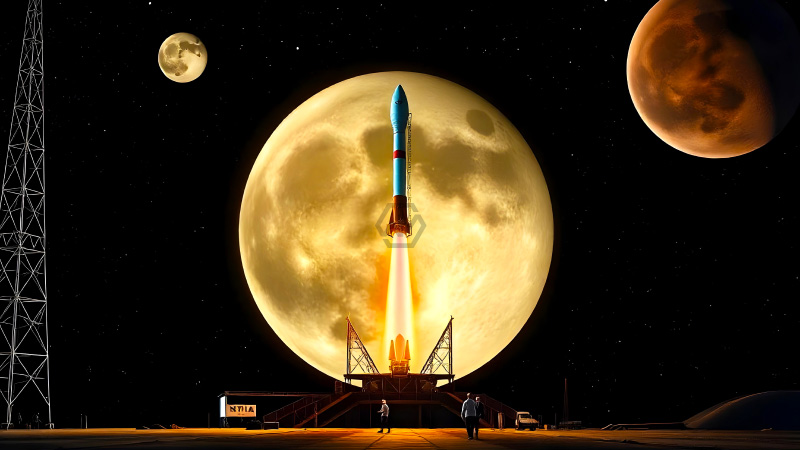- India’s Union Cabinet approved a ₹1,236 crore Venus Orbiter Mission (VOM) for studying Venus.
- A ₹8,240 crore Next Generation Launch Vehicle (NGLV) will be developed to boost space capabilities.
- NGLV aims for reusable technology and increased payload capacity, supporting future space missions.
India is set to enhance its space exploration efforts with the recent approval of the Venus Orbiter Mission (VOM). The mission, backed by a budget of ₹1,236 crore, aims to explore Venus, offering new insights into the planet’s atmosphere and geology.
This initiative reflects India’s growing ambitions in space research and planetary exploration.
India to Unveil New Venus Mission and Launch Vehicle with Record Investments
Simultaneously, the Indian government has sanctioned the development of a Next Generation Launch Vehicle (NGLV) with ₹8,240 crore. The NGLV will feature a reusable first stage and advanced propulsion systems, significantly increasing payload capacity and reducing launch costs. This vehicle will support future missions, including the Bharatiya Antariksh Station and potential crewed lunar landings by 2040.
The government has also greenlit the development of a Next Generation Launch Vehicle (NGLV) with a substantial funding of ₹8,240 crore. This new launch vehicle is designed to carry up to 30 tonnes to Low Earth Orbit (LEO) and will feature reusable technology for cost efficiency. It marks a significant upgrade from current launch systems and will play a crucial role in future space missions, including India’s plans for a space station and crewed lunar missions.
India’s dual investment in the Venus Orbiter Mission and the Next Generation Launch Vehicle highlights its ambition to advance space exploration and technology. These initiatives promise to strengthen India’s position in the global space arena and pave the way for future breakthroughs.
“India’s growing space ambitions are evident in its significant investment in the Venus Orbiter Mission and the development of the Next Generation Launch Vehicle,



